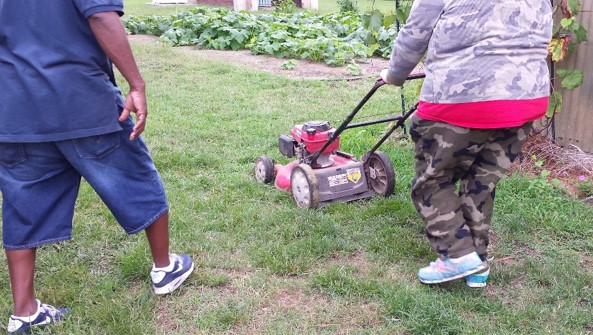
In the past, people living with mental health challenges were often encouraged not to work. But on the road to recovery, finding purpose through meaningful activities, such as employment, can be helpful.
At East Central Regional Hospital in Augusta, the work therapy program aims to empower people with skills learned on the job. The program is guided by several principles and practices, including supported employment that helps people with severe mental illness work at regular jobs of their choosing.
“Through the work therapy program, consumers can become contributors, and people who are isolated can become engaged,” said Work Therapy Coordinator Tiffany Snow.

The scope of work ranges from individual experiences to group experiences that includes hobbies and career exploration to campus job sites. At both the Augusta and Gracewood campuses, individuals have the opportunity to work at the treatment mall, in the central kitchen, with the yard crew, in the library, and in the apparel shop, among other job sites. More than 50 individuals have paid employment, more than 20 individuals are in training and groups, and three individuals are in transitional employment.
Recovery-oriented cognitive therapy (CT-R) also is an important component of the work therapy program. DBHDD staff were trained by the Beck Initiative in 2014 through a series of workshops and weekly consultations. The work therapy program now utilizes CT-R to help people who may continue to experience symptoms or challenges.

The program continues to expand by strengthening connections with vocational rehabilitation and supported employment providers, and by developing off-campus work and volunteer opportunities.